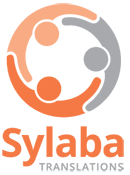In today’s globally diverse landscape, the significance of translation in health and community services cannot be overstated. Effective communication stands as a fundamental pillar for the prosperity of communities, and the art of translating information from one language to another plays a crucial role in nurturing comprehension and cooperation. This is especially evident in the vital spheres of health and community services. As our lives become increasingly intertwined through globalisation, the demand for precise and easily accessible information in various languages has reached a pinnacle, emphasising the importance of translation in health and community services.
Benefits of Translation in Health Services
Translation plays a crucial role in health services, offering various benefits that contribute to effective and equitable healthcare delivery. Here are some key advantages:
Improved Patient Communication
Patient-Provider Communication: Translation services enable effective communication between healthcare providers and patients who speak different languages. This ensures that patients fully understand their medical conditions, treatment options, and instructions for medication and follow-up care.
Enhanced Access to Healthcare
Overcoming Language Barriers: Translation services break down language barriers, facilitating access to healthcare services for individuals from diverse linguistic backgrounds. This is particularly important in multicultural societies where patients may speak languages not commonly spoken by healthcare providers.
Cultural Competence
Understanding Cultural Nuances: Translation helps healthcare professionals understand cultural nuances and beliefs that may impact a patient’s health. This cultural competence is crucial for providing patient-centered care that respects individual values and preferences.
Informed Consent
Clear Communication for Informed Decisions: Translation ensures that patients can provide informed consent for medical procedures, treatments, and research. This is essential for respecting patients’ autonomy and ensuring they understand the potential risks and benefits of their healthcare choices.
Reduced Health Disparities
Equity in Healthcare: Translation services contribute to reducing health disparities by ensuring that individuals from linguistically diverse backgrounds receive the same level of care as those who speak the dominant language. This promotes health equity and equal access to healthcare services.
Accurate Medical Records
Precision in Documentation: Translation services help maintain accurate and precise medical records, as healthcare information is translated into a common language for documentation. This is essential for continuity of care and collaboration among healthcare professionals.
Emergency Situations
Quick and Effective Communication in Emergencies: In emergencies, clear and quick communication is vital. Translation services can be crucial in conveying critical information to non-English speaking patients or in coordinating care with healthcare providers who speak different languages.
Compliance with Regulations
Legal and Regulatory Compliance: Many healthcare systems and institutions are required by law to provide language access services. Compliance with these regulations ensures that healthcare organisations are meeting the needs of diverse patient populations.
Patient Satisfaction
Enhanced Patient Experience: Clear communication contributes to positive patient experiences. When patients can understand and communicate effectively with their healthcare providers, they are more likely to feel satisfied with their care and are likely to comply with treatment plans.
Professional Collaboration
Interdisciplinary Collaboration: Translation services facilitate collaboration among healthcare professionals who may come from different language backgrounds. This is important in settings where diverse teams work together to provide comprehensive care.
Translation services in health services are integral for promoting effective communication, ensuring cultural competence, reducing disparities, and ultimately improving patient outcomes and satisfaction.
Benefits of Translation in Community Services
Translation plays a vital role in community services, fostering inclusivity, communication, and access to essential resources. Here are several benefits of translation in community services:
Inclusive Communication
Reaching Diverse Audiences: Translation ensures that information is accessible to individuals from diverse linguistic backgrounds, creating an inclusive environment and promoting equal participation in community programs and services.
Cultural Understanding
Respecting Cultural Diversity: Translation helps community service providers understand and respect the cultural backgrounds of the individuals they serve. This understanding is crucial for tailoring services to the unique needs and preferences of different cultural groups.
Enhanced Access to Services
Breaking Language Barriers: Translation services break down language barriers, making community services more accessible to individuals who may speak languages other than the dominant one in a particular community.
Educational Outreach
Disseminating Information Effectively: Translation enables community organisations to effectively disseminate information about services, events, and resources. This is particularly important for educational outreach initiatives aimed at improving community well-being.
Legal and Administrative Support
Navigating Administrative Processes: Translation helps community members navigate complex administrative processes, such as filling out forms, understanding legal documents, and accessing government services, leading to increased compliance and engagement.
Health and Social Services Access
Facilitating Healthcare Access: Translation is crucial in healthcare settings within community services, ensuring that individuals can access medical services, understand health information, and communicate effectively with healthcare providers.
Community Engagement
Building Trust and Engagement: Translation fosters trust within diverse communities, as it demonstrates a commitment to understanding and meeting the needs of individuals with different language backgrounds. This, in turn, promotes community engagement and collaboration.
Employment and Career Support
Job Seeker Assistance: Translation supports job seekers by providing translated materials on employment opportunities, job applications, and career development resources, helping individuals access economic opportunities.
Social Integration
Integration of Immigrants and Refugees: Translation aids in the social integration of immigrants and refugees by providing them with information about community services, local resources, and cultural adaptation programs in their native languages.
Emergency and Crisis Communication
Ensuring Safety and Well-being: In times of emergencies or crises, translation services are essential for disseminating critical information, ensuring that all community members receive important updates and instructions regardless of their language proficiency.
Education and Youth Services
Supporting Educational Initiatives: Translation supports educational initiatives by making information about schools, educational programs, and youth services accessible to parents and students who may speak languages other than the predominant one in the community.
Community Empowerment
Empowering Individuals: Translation empowers individuals by providing them with the information and tools they need to actively participate in community activities, advocate for their rights, and make informed decisions that impact their lives.
Translation in community services promotes inclusivity, facilitates access to resources, and strengthens the overall well-being of diverse populations by ensuring that language is not a barrier to essential services and information.
Things to Consider
Cost of Translation Services:
Acknowledge budget constraints and suggest strategies for cost-effective translation, such as utilising volunteer translators or leveraging technology to streamline the process without compromising quality.
Ensuring Accuracy and Quality:
Stress the importance of accuracy in translation, especially in healthcare contexts. Guide on selecting qualified and experienced translators or translation services to ensure the highest standard of communication.
Cultural Sensitivity:
Elaborate on the significance of cultural sensitivity in translation. Offer tips on how community service providers can ensure that translated materials respect cultural nuances, promoting inclusivity and positive reception among diverse audiences.
Conclusion: The Importance of Translation in Health and Community Services
We highlights how translation services can greatly transform health and community services. By making language inclusive a priority, we can create a more connected and fair society. Let’s remember the incredible power of translation to close gaps, empower individuals, and strengthen communities. To learn more about the impact of professional translation services contact us today.
Related Posts

Get a quote today
"*" indicates required fields
Subscribe today to receive the latest insights and updates from Sylaba Translations









